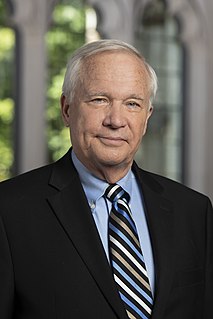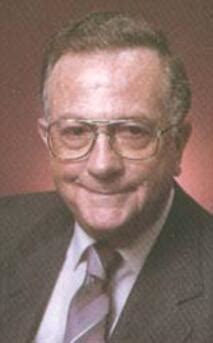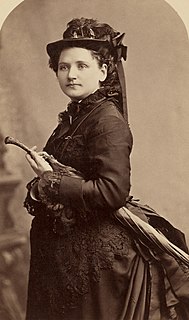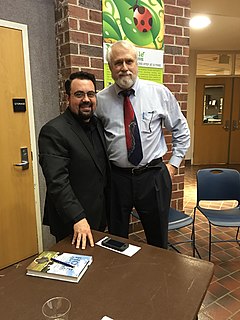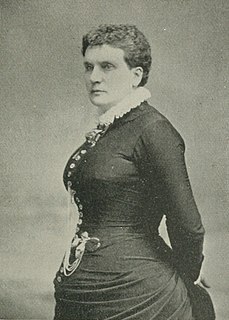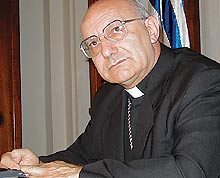Top 766 Theology Quotes & Sayings - Page 13
Explore popular Theology quotes.
Last updated on November 17, 2024.
I am worried by the Blessed Virgin’s messages to Lucy of Fatima. This persistence of Mary about the dangers which menace the Church is a Divine warning against the suicide of altering the Faith, in Her liturgy, Her theology and Her soulI hear all around me innovators who wish to dismantle the Sacred Chapel, destroy the universal flame of the true Faith of the Church, reject Her ornaments and make Her feel remorse for Her historical past.
In general, in the matters that relate to theology or behavior, people to one another, Paul was obviously biblically correct. But when he said that women should always cover their hair or that women should not teach men, women should not have leadership positions in the church, women should not speak in the church, I don't' think that those writings of Paul can be extracted by themselves to stand alone. Also, Paul said that women should be subservient to their husbands but if you read a couple of verses down it says husbands should treat their wives as equals.
Theology is-- or should be-- a species of poetry,which read quickly or encountered in a hubbub of noise makes no sense. You have to open yourself to a poem with a quiet, receptive mind, in the same way you might listen to a difficult piece of music... If you seize upon a poem and try to extort its meaning before you are ready, it remains opaque. If you bring your own personal agenda to bear upon it, the poem will close upon itself like a clam, because you have denied its unique and separate identity, its inviolate holiness.
Interestingly, God's remedy for Elijah's depression was not a refresher course in theology but food and sleep... Before God spoke to him at all, Elijah was fed twice and given a good chance to sleep. Only then, and very gently, did God confront him with his error. This is always God's way. Having made us as human beings, He respects our humanness and treats us with integrity. That is, He treats us true to the truth of who we are. It is human beings and not God who have made spirituality impractical.
Calvinism emphasizes divine sovereignty and free grace; Arminianism emphasizes human responsibility. The one restricts the saving grace to the elect; the other extends it to all men on the condition of faith. Both are right in what they assert; both are wrong in what they deny. If one important truth is pressed to the exclusion of another truth of equal importance, it becomes an error, and loses its hold upon the conscience. The Bible gives us a theology which is more human than Calvinism and more divine than Arminianism, and more Christian than either of them.
Just when I get my church all sorted out, sheep from the goats, saved from the damned, hopeless from the hopeful, somebody makes a move, get out of focus, cuts loose, and I see why Jesus never wrote systematic theology. So you and I can give thanks that the locus of Christian thinking appears to be shifting from North America and northern Europe where people write rules and obey them, to places like Africa and Latin America where people still know how to dance.
Isn't it sad, that in a time when we face so many devastating problems - poverty, HIV/AIDS, war and conflict - that in our Communion we should be investing so much time and energy on disagreement about sexual orientation? [The Communion, which] used to be known for embodying the attribute of comprehensiveness, of inclusiveness, where we were meant to accommodate all and diverse views, saying we may differ in our theology but we belong together as sisters and brothers [now seems] hell-bent on excommunicating one another. God must look on and God must weep.
Those who don't feel this Love pulling them like a river, those who don't drink dawn like a cup of spring water or take in the sunset like supper, those who don't want to change, let them sleep on. This Love is beyond the study of theology, that old trickery and hypocrisy. If you want to improve your mind that way, sleep on. I've given up on my brain. I've torn the cloth to shreds and thrown it away. If you're not completely naked, wrap your beautiful robe of words around you, and sleep on
Many years ago I was driven to the conclusion that the two major causes of most emotional problems among evangelical Christians are these: the failure to understand, receive, and live into God's unconditional grace and forgiveness; and the failure to give out that unconditional love, forgiveness, and grace to other peopleWe read, we hear, we believe a good theology of grace. But that's not the way we live. The good news of the Gospel of grace has not penetrated the level of our emotions.
There's a stronger and more kind of controversial element of Plotinus' view of matter, which is that he actually identifies it with evil, or at least the principle of evil, and the reason for this is that he thinks that the the One, the highest principle, can also be thought of as the Good, and that's kind of surprising like, because he has this negative theology which doesn't allow us to say anything about the One. But he believes that it can be seen as the principle of goodness as well as unity, and that if you think about it, goodness and unity sort of go along with each other.
This, then, is the foundation of sanctification in Reformed theology. It is rooted, not in humanity and their achievement of holiness or sanctification, but in what God has done in Christ, and for us in union with him. Rather than view Christians first and foremost in the microcosmic context of their own progress, the Reformed doctrine first of all sets them in the macrocosm of God's activity in redemptive history. It is seeing oneself in this context that enables the individual Christian to grow in true holiness.
Discipleship means adherence to Christ and, because Christ is the object of that adherence, it must take the form of discipleship. An abstract theology, a doctrinal system, a general religious knowledge of the subject of grace or the forgiveness of sins, render discipleship superfluous, and in fact exclude any idea of discipleship whatsoever, and are essentially inimical to the whole conception of following Christ....Christianity without the living Christ is inevitably Christianity without discipleship, and Christianity without discipleship is always Christianity without Christ.
This book will expose the sins of the fathers and the vicious abuse of the Jewish people. 'In Defense of Israel' will shake Christian theology. It scripturally proves that the Jewish people as a whole did not reject Jesus as Messiah. It will also prove that Jesus did not come to earth to be the Messiah. It will prove that there was a 'Calvary conspiracy' between Rome, the high priest, and Herod to execute Jesus as an insurrectionist too dangerous to live. Since Jesus refused by word and deed to claim to be the Messiah, how can the Jews be blamed for rejecting what was never offered?
Writers are greatly respected. The intelligent public is wonderfully patient with them, continues to read them, and endures disappointment after disappointment, waiting to hear from art what it does not hear from theology, philosophy, social theory, and what it cannot hear from pure science. Out of the struggle at the center has come an immense, painful longing for a broader, more flexible, fuller, more coherent, more comprehensive account of what we human beings are, who we are and what this life is for.
In the move The Last Emperor, the young child anointed as the last emperor of China lives a magical life of luxury with a thousand eunuch servants at his command. "What happens when you do wrong?" his brother asks. "When I do wrong, someone else is punished," the boy emperor replies. To demonstrate, he breaks a jar, and one of the servants is beaten. In Christian theology, Jesus reversed that ancient pattern: when the servants erred, the King was punished. Grace is free only because the giver himself has borned the cost.
It may be observed in general that the future is purchased by the present. It is not possible to secure distant or permanent happiness but by the forbearance of some immediate gratification. This is so evidently true with regard to the whole of our existence that all precepts of theology have no other tendency than to enforce a life of faith; a life regulated not by our senses but by our belief; a life in which pleasures are to be refused for fear of invisible punishments, and calamities sometimes to be sought, and always endured, in hope of rewards that shall be obtained in another state.
Rationally considered, nothing can be more absurd than the baptism of infants under any circumstances. No statement, no matter by whom it may be said to have been uttered, can make that true which is radically false. If an innocent child, unconscious of good or evil, irresponsible to God and man, incapable of thought or action, is not already, in accordance with Christian theology, a member of Christ, then no vicarious promise or priestly ablution can make him one. For if this were so, a similar ceremony under devil worship could make him a member of Satan.
It is often reported that the Five Points of Calvinism are the conceptual hard-core of Reformed thought. That is very misleading. The Five Points supposedly originate with the Synod of Dort in the early seventeenth century. Yet we find important Reformed leaders who were signatories to that documentation who don't think that limited atonement is the right way to think about the scope of Christ's saving work. How can this be? The answer that recent historical theology has thrown up is that the canons of the Synod don't require adherence to the doctrine of limited atonement.
Religion does a lot of good, especially the loving kind, like at Grace Church. I know people who went to a more liberal kind of Christianity and were happy with that. The problem is, for me, there was a process involved in moving from Pentecostalism to a more liberal theology, like Grace Church. What makes me different is that process didn't stop, and it took me all the way. In the end, I couldn't help feeling that all religion, even the most loving kind, is just a speed bump in the progress of the human race.
Theology is like a map. Merely learning and thinking about the Christian doctrines, if you stop there, is less real and less exciting than the sort of thing my friend got in the desert. Doctrines are not God: they are only a kind of map. But that map is based on the experience of hundreds of people who really were in touch with God--experiences compared with which many thrills of pious feelings you and I are likely to get on our own are very elementary and very confused. And secondly, if you want to get any further you must use the map.
I am interested in Scripture and theology. This is an interest that I can assume I would share with a pastor, so that makes me a little bit prone to use that kind of character, perhaps, just at the moment. Then there is also the fact that, having been a church member for many years, I am very aware of how much pastors enrich people's experience, people for whom they are significant. I know that it's a kind of custom of American literature and culture to slang them. I don't think there is any reason why that needs to be persisted in.
This is the process of Self realization about which Eastern mystics have written. It is the process of salvation to which much Western theology has devoted itself. This is a day-to-day, hour-to-hour, moment-to-moment act of supreme consciousness. It is a choosing and a re-choosing every instant. It is ongoing creation. Conscious creation. Creation with a purpose. It is using the tools of creation we have discussed, and using them with awareness and sublime intention.
After the birth of printing books became widespread. Hence everyone throughout Europe devoted himself to the study of literature... Every year, especially since 1563, the number of writings published in every field is greater than all those produced in the past thousand years. Through them there has today been created a new theology and a new jurisprudence; the Paracelsians have created medicine anew and the Copernicans have created astronomy anew. I really believe that at last the world is alive, indeed seething, and that the stimuli of these remarkable conjunctions did not act in vain.
Now, brethren, this is one of our greatest faults in our Christian lives. We are allowing too many rivals of God. We actually have too many gods. We have too many irons in the fire. We have too much theology that we don't understand. We have too much churchly institutionalism. We have too much religion. Actually, I guess we just have too much of too much.
Under the desert sun, in the dogmatic clarity, the fables of theology and the myths of classical philosophy dissolve like mist. The air is clean, the rock cuts cruelly into flesh; shatter the rock and the odor of flint rises to your nostrils, bitter and sharp. Whirlwinds dance across the salt flats, a pillar of dust by day; the thornbush breaks into flame at night. What does it mean? It means nothing. It is as it is and has no need for meaning. The desert lies beneath and soars beyond any possible human qualification. Therefore, sublime.
Although it has been fashionable to deny it, anti-slavery doctrines began to appear in Christian theology soon after the decline of Rome and were accompanied by the eventual disappearance of slavery in all but the fringes of Christian Europe. When Europeans subsequently instituted slavery in the New World, they did so over strenuous papal opposition, a fact that was conveniently 'lost' from history until recently. Finally, the abolition of New World slavery was initiated and achieved by Christian activists.
Religion is not the hero of the day, but the zero. In any exposition of the products of brains, the Sunday-School takes the booby prize. . . . Man has asked for truth and the Church has given him miracles. He has asked for knowledge, and the Church has given him theology. He has asked for facts, and the Church has given him the Bible. This foolishness should stop. The Church has nothing to give man that has not been in cold storage for two thousand years. Anything would become stale in that time.
The antagonism between science and religion, about which we hear so much, appears to me to be purely factitiousfabricated, on the one hand, by short-sighted religious people who confound a certain branch of science, theology, with religion; and, on the other, by equally short-sighted scientific people who forget that science takes for its province only that which is susceptible of clear intellectual comprehension; and that, outside the boundaries of that province, they must be content with imagination, with hope, and with ignorance
Note, to-day, an instructive, curious spectacle and conflict. Science, (twin, in its fields, of Democracy in its)—Science, testing absolutely all thoughts, all works, has already burst well upon the world—a sun, mounting, most illuminating, most glorious—surely never again to set. But against it, deeply entrench'd, holding possession, yet remains, (not only through the churches and schools, but by imaginative literature, and unregenerate poetry,) the fossil theology of the mythic-materialistic, superstitious, untaught and credulous, fable-loving, primitive ages of humanity.
In the name of compassion, Obama advocates seemingly endless extensions of unemployment benefits because his economic theology holds that by paying people not to work, you will create jobs. It not only fails to factor in the obvious deterrent that extended benefits have on their recipients but also falsely assumes that transferring money from one pocket to the next generates more spending - by some mythical multiple factor, no less. Back on planet Earth, studies reveal that extending unemployment benefits results in more unemployment.
Kant's treatments of rational theology and metaphysics were aimed primarily at theoretical questions. His attitude toward the pseudo-sciences of "special metaphysics" in Wolff and Baumgarten was always double-edged. He did see them as pseudo-sciences but also valued their doctrinal value and especially their regulative value for the empirical sciences. Like his views about religion, I don't think any of this is any longer viable in its original form.
Orthodoxy is idolatry if it means holding the 'correct opinions about God' - 'fundamentalism' is the most extreme and salient example of such idolatry - but not if it means holding faith in the right way, that is, not holding it at all but being held by God, in love and service. Theology is idolatry if it means what we say about God instead of letting ourselves be addressed by what God has to say to us. Faith is idolatrous if it is rigidly self-certain but not if it is softened in the waters of 'doubt.
Man is a Religious Animal. He is the only Religious Animal. He is the only animal that has the True Religion--several of them. He is the only animal that loves his neighbor as himself and cuts his throat if his theology isn't straight. He has made a graveyard of the globe in trying his honest best to smooth his brother's path to happiness and heaven....The higher animals have no religion. And we are told that they are going to be left out in the Hereafter. I wonder why? It seems questionable taste.
At the end of the day, when I am lying in bed and I know the chances of any of our theology being exactly right are a million to one, I need to know that God has things figured out, that if my math is wrong we are still going to be okay. And wonder is that feeling we get when we let go of our silly answers, our mapped out rules that we want God to follow. I don't think there is any better worship than wonder.
Our goals should stretch us bit by bit. So often when we think we have encountered a ceiling, it is really a psychological or experimental barrier that we have built ourselves. We built it and we can remove it. Just as correct principles, when applied, carry their own witness that they are true, so do correct personal improvement programs. But we must not expect personal improvement without pain or some 'remodeling.' We can't expect to have the thrills of revealed religion without the theology. We cannot expect to have the soul stretching without Christian service.
Our conduct has a direct influence on how people think about the gospel. The world doesn't judge us by our theology; the world judges us by our behavior. People don't necessarily want to know what we believe about the Bible. They want to see if what we believe makes a difference in our lives. Our actions either bring glory to God or misrepresent His truth.
Before the Christian Church goes into eclipse anywhere there must first be a corrupting of her simple basic theology. She simply gets a wrong answer to the question, ‘What is God like?’ and goes on from there. Though she may continue to cling to a sound nominal creed, her practical working creed has become false. The masses of her adherents come to believe that God is different from what He actually is; and that is heresy of the most insidious and deadly kind
The religions whose theology is least preoccupied with events in time and most concerned with eternity, have been consistently less violent and more humane in political practice. Unlike early Judaism, Christianity and Mohammedanism (all obsessed with time) Hinduism and Buddhism have never been persecuting faiths, have preached almost no holy wars and have refrained from that proselytizing religious imperialism which has gone hand in hand with political and economic oppression of colored people.
Since Moses was in Egypt land, Gods people have been struggling for justice while singing freedom songs. Theology can be clarifying. A good sermon has its place. But nothing is more essential for the life of faith in a community than liturgy that invites us to sing the freedom songs that are sung around the throne of God. Brother Ken Sehested is a song leader in that great cloud of witnesses. Receive his words as gift-and keep singing.
Christians have always tended to transform the Christian Revelation into a Christian religion. Christianity is said to be a religion like any other or, conversely, some Christians try to show that it is a better religion than the others. People attempt to take possession of God. Theology claims to explain everything, including the being of God. People tend to transform Christianity into a religion because the Christian faith obviously places people in an extremely uncomfortable position that of freedom guided only by love and all in the context of God's radical demand that we be holy.
Al-Ghazali is the most important philosophical theologian of classical Islam, and Moderation in Belief is among his most important works. It sets out al-Ghazali's Ash?arite theology with unusual clarity and provides important background for such well-known works as his autobiographical Deliverance from Error and his attack on Avicenna in The Incoherence of the Philosophers. This first English-language translation, with notes that bring out the argumentation and background of the work, is thus very much to be welcomed.
I have chosen for my emblem a Star, representing the Virgin Mary, and the Eucharist. Those who know me as a professor of theology will remember my passion for the Eucharist from our classes. Blessed be God for this madness... We must live our commitment to society steeped in the Eucharist. We must take the Eucharist to the streets, both in the heart of the city and on the outskirts, to the poor neighborhoods and to hospitals... In order to obey the Resurrected Christ, I dare say with Pope John Paul II: 'Open wide the doors of your heart to the Holy Spirit.'
The notion that science does not concern itself with first causes - that it leaves the field to theology or metaphysics, and confines itself to mere effects - this notion has no support in the plain facts. If it could, science would explain the origin of life on earth at once - and there is every reason to believe that it will do so on some not too remote tomorrow. To argue that gaps in knowledge which will confront the seeker must be filled, not by patient inquiry, but by intuition or revelation, is simply to give ignorance a gratuitous and preposterous dignity.
Solid scriptural theology should be valued in the church. Books in which Scripture is reverently regarded as the only rule of faith and practice-- books in which Christ and the Holy Ghost have their rightful office-- books in which justification, and sanctification, and regeneration, and faith, and grace, and holiness are clearly, distinctly, and accurately delineated and exhibited, these are the only books which do real good. Few things need reviving more than a taste for such books as these among readers.





